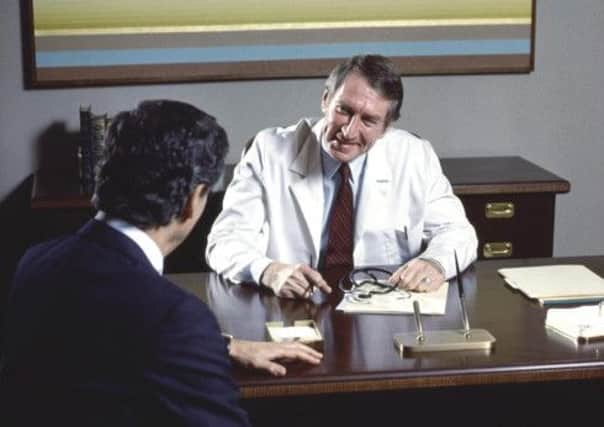Tenth of doctor visits by sufferers of loneliness


In Scotland 83 per cent of doctors surveyed said they estimated between one and five patients visiting their general practices every day were really there because of loneliness.
This led to estimates that as many as one in ten GP appointments may be taken up by people suffering from loneliness rather than illness.
Advertisement
Hide AdAdvertisement
Hide AdHowever, the Campaign to End Loneliness said that almost half of doctors said they did not have the skills to help these lonely patients
Its survey, which included more than 1,000 doctors around the UK, found that in Scotland 49 per cent of general practitioners said they were not confident they had the necessary tools to help patients whose main problem was feeling isolated.
Across the UK some GPs reported even greater levels of loneliness among their patients, with 11 per cent of family doctors reporting seeing between six and ten patients a day who they think are lonely, and 4 per cent seeing more than ten lonely patients on an average day.
Kate Jopling, director for the Campaign to End Loneliness, said: “Far too many people are feeling so lonely, and so at a loss about what to do about it, that they end up going to see their doctor.
“It’s time we committed to a more co-ordinated public health response that targets resources towards better support for lonely people, and prevention of loneliness for those at risk.
“I know that many doctors will feel frustrated at not being able to help their patients but there are things they can do.
“There are many schemes, both public and voluntary, that can help lonely older people and the first step for doctors should be to signpost these to patients.”
The Campaign to End Loneliness is made up of local, regional and national organisations and individuals who are working together to try to combat isolation and loneliness across the UK.
Advertisement
Hide AdAdvertisement
Hide AdIts estimates suggest that almost three million people over 65 declare they are lonely. About a fifth of older people say they are sometimes lonely, and between six and 13 per cent say they are always lonely, its research showed.
The campaigners said that loneliness and isolation were associated with poor mental, physical and emotional health, including increased rates of cardiovascular disease, hypertension, cognitive decline and dementia. They said isolated and lonely adults were also more likely to be admitted earlier into residential or nursing care.
The campaign wants local authorities to help better track and support lonely older people and increase awareness of loneliness as a public health issue.
Ms Jopling added: “Loneliness is putting an unnecessary strain on local GP surgeries and social care services. Only half of the new local health and wellbeing boards have acknowledged loneliness in their strategies.
“This needs to increase if we are to help lonely older people and ultimately improve health outcomes in later life.”
Earlier this year The Scotsman revealed that a project to try to tackle loneliness with volunteer “friends” was being expanded following research showing a link between isolation and early death. Scottish charity Health in Mind runs the scheme which was expanded after a study found people not in regular contact with friends and family were 50 per cent more likely to die prematurely.
Dr Andrew Buist, deputy chairman of the BMA’s Scottish GP Committee, said: “GPs should be able to direct patients to local services in their communities where lonely people can go to to get involved in activities.”